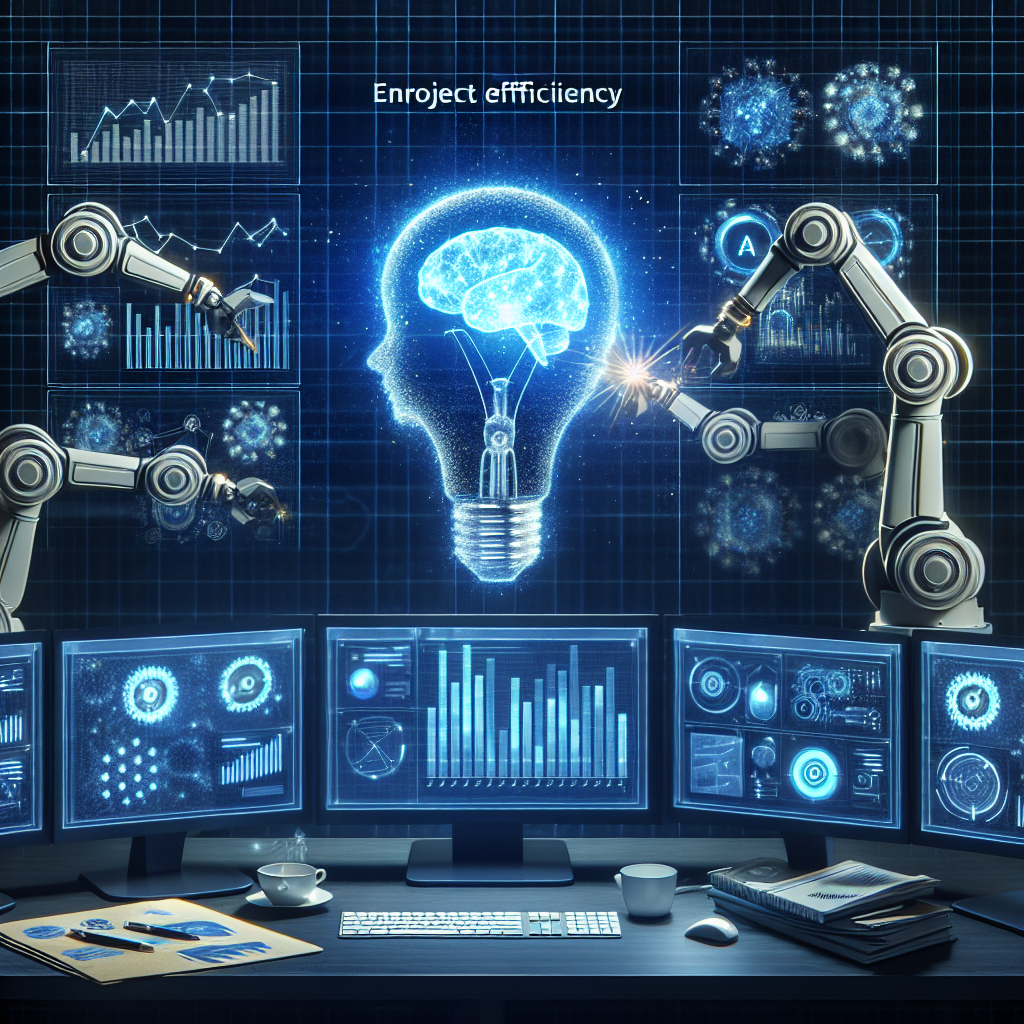In today’s fast-paced world, businesses are constantly looking for ways to enhance project efficiency and streamline operations. One of the most promising tools to achieve this goal is artificial intelligence (AI). AI has the potential to revolutionize project management by automating routine tasks, providing valuable insights, and improving decision-making processes. In this article, we will explore how AI can enhance project efficiency and discuss some of the key benefits and challenges associated with its implementation.
One of the key ways AI can enhance project efficiency is by automating repetitive tasks. AI-powered tools can handle mundane tasks such as data entry, scheduling, and reporting, freeing up project managers and team members to focus on more strategic and value-added activities. For example, AI can automatically generate project schedules based on historical data, optimize resource allocation, and track progress in real-time. This not only saves time and effort but also reduces the risk of human error.
Another way AI can enhance project efficiency is by providing valuable insights and predictions. AI algorithms can analyze large volumes of data to identify patterns, trends, and correlations that may not be apparent to human observers. This can help project managers make more informed decisions, anticipate potential issues, and proactively address risks. For example, AI can analyze project performance data to predict delays, identify bottlenecks, and recommend corrective actions. This can help projects stay on track and meet their deadlines.
AI can also improve collaboration and communication among project team members. AI-powered tools can facilitate real-time communication, streamline information sharing, and foster collaboration across different departments and locations. For example, AI chatbots can answer common questions, provide updates on project status, and facilitate discussions among team members. This can help improve coordination, reduce misunderstandings, and ensure that everyone is on the same page.
Despite its potential benefits, implementing AI in project management also comes with its own set of challenges. One of the key challenges is the need for specialized skills and expertise. AI technologies are complex and require expertise in data science, machine learning, and programming. Many organizations may not have the necessary skills in-house and may need to invest in training or hire external experts. Additionally, implementing AI can be expensive and time-consuming, requiring significant upfront investment and resources.
Another challenge is the potential for bias and ethical concerns. AI algorithms are only as good as the data they are trained on, and biased or incomplete data can lead to inaccurate or unfair results. For example, AI algorithms trained on historical data may perpetuate existing biases or discrimination. It is important for organizations to carefully monitor and evaluate AI systems to ensure they are fair, transparent, and accountable.
Despite these challenges, the potential benefits of AI in project management are too significant to ignore. By automating routine tasks, providing valuable insights, and improving collaboration, AI can help organizations enhance project efficiency, reduce costs, and deliver better results. As AI technologies continue to evolve and mature, we can expect to see even greater advancements in project management and other areas of business.
FAQs:
Q: How can AI improve project efficiency?
A: AI can improve project efficiency by automating repetitive tasks, providing valuable insights and predictions, improving collaboration and communication, and optimizing resource allocation.
Q: What are some examples of AI-powered tools in project management?
A: Some examples of AI-powered tools in project management include project scheduling software, predictive analytics tools, chatbots, and virtual assistants.
Q: What are some of the challenges of implementing AI in project management?
A: Some of the challenges of implementing AI in project management include the need for specialized skills and expertise, the potential for bias and ethical concerns, and the upfront investment and resources required.
Q: How can organizations address bias and ethical concerns in AI systems?
A: Organizations can address bias and ethical concerns in AI systems by carefully monitoring and evaluating AI algorithms, ensuring that they are trained on diverse and representative data, and implementing safeguards and controls to prevent discrimination.
Q: What are some best practices for implementing AI in project management?
A: Some best practices for implementing AI in project management include identifying clear goals and objectives, selecting the right AI technologies for the job, investing in training and development, and continuously monitoring and evaluating AI systems for performance and fairness.

